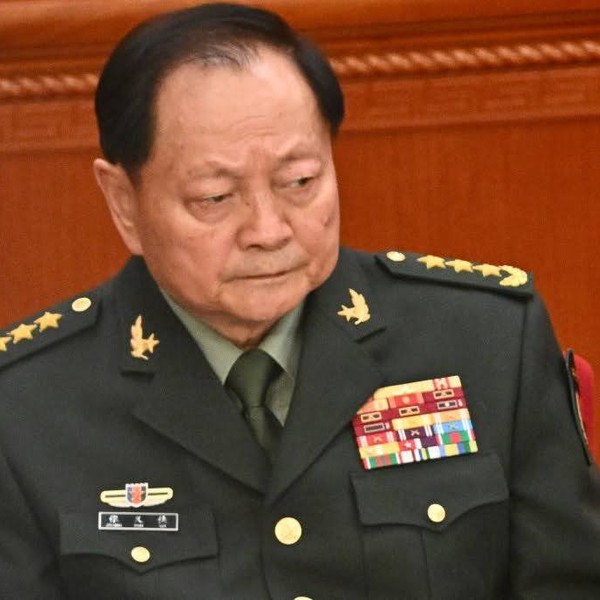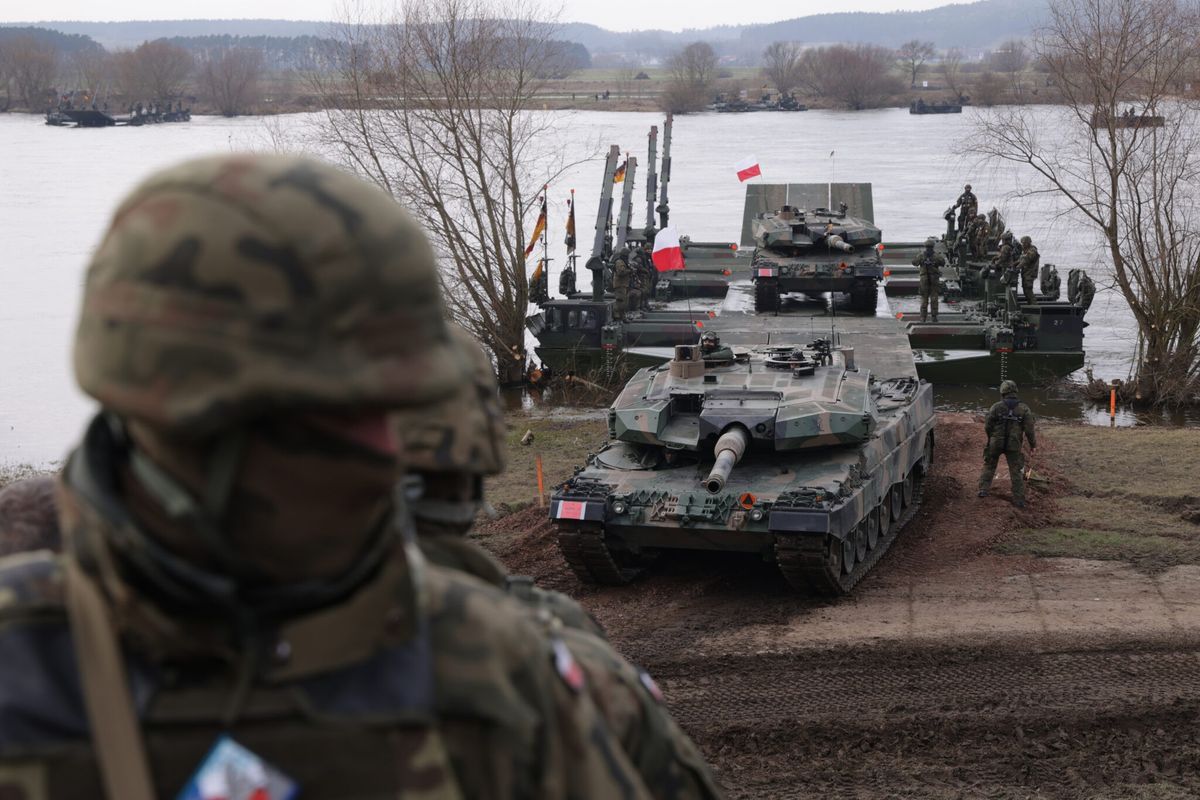OPINION — In 2022 Russia launched its full-scale military invasion of Ukraine, a big and bloody war between the two largest countries in Europe with no end in sight. Should Americans care? Does it really matter to us? What should we do? Should we do anything? These questions are the latest manifestation of a debate as old as the republic itself—America’s proper role in the wider world.
That we have the luxury of choice is largely a function of our geographic isolation between two vast oceans, making geopolitical detachment more of a genuine option for us than for most other countries, our so-called “strategic immunity.” Indeed, our founders seemed to favor introversion as our default mode with their warnings about “foreign entanglements” and not going in search of “monsters to destroy.” For a public now weary from two long and costly wars whose ultimate benefits were ambiguous at best, the appeal of isolationism is understandable. We spent billions, lost thousands, gained mostly resentment in return, and seemingly achieved little in the way of improved security. Why get involved again “over there”?
It's not just for the President anymore. Cipher Brief Subscriber+Members have access to their own Open Source Daily Brief, keeping you up to date on global events impacting national security. It pays to be a Subscriber+Member.
It’s a serious argument and one with deep roots in American tradition, but disengagement is the wrong response to the interconnected struggle in which we now find ourselves with Russia and China. As currently ruled, these are powerful and malignant foes with global aspirations. It’s as unrealistic to think we can isolate ourselves from their toxic influence as it was to think we could do so with Nazi Germany and the USSR. Chamberlain’s appeasement and the US Neutrality Act did not satisfy Hitler, nor was it Richard Nixon and Jimmy Carter’s détente that ended the Soviet threat, but Ronald Reagan’s tenacious confrontation of it. Russia’s hot war against Ukraine and China’s threats against Taiwan are merely the most visible gambits in their wider ambitions. Make no mistake, even if we give them a free hand, they will still strive to subvert us and the things we stand for. In fact, they’re already doing it.
Both Russia and China are engaged in massive and expanding clandestine efforts to steal US government and commercial secrets, split our alliances, inflame our societal divisions, subvert our democratic processes, and set the stage for large scale sabotage of our critical infrastructure—in short, sow chaos. Their apologists claim this is an understandable reaction to aggressive actions taken by the US and our democratic allies, such as NATO’s enlargement to include some of Russia’s neighbors and our selfish obstruction of China’s “peaceful rise.” In truth, the growth in their hostility has more to do with our excessive tolerance of their proliferating infractions against civilized norms than our interference with their rightful claims.
After the Cold War
When the USSR collapsed and Russia was at its most vulnerable, the allegedly nazified NATO (Russia’s claim) did not march its armies into Moscow, dismantle Russian’s nuclear deterrence, seize Russian natural resources, and enslave its population. Japan did not exploit Russia’s unprecedented weakness to retake the Kurile Islands. Finland did not reabsorb Karelia, nor Germany East Prussia/Kaliningrad. Instead, Russia was welcomed into the G-7 and the WTO and its business and government leaders regularly feted at Davos. Western investment and commerce blossomed, and Russia was generally accepted as a more or less normal country. This continued even after Vladimir Putin’s rise to power and his steady reimposition of autocratic rule, murder of political opponents at home and abroad, poisoning of Ukrainian Presidential candidate Viktor Yushchenko in 2004, invasion of Georgia in 2008, and military occupation of Ukraine’s Crimea and Donbas in 2014. Each of these transgressions was met with new “resets” from the US and its allies eager to avoid any serious confrontation. In short, appeasement.
NATO did, over fierce Russian objections, broaden its membership after the fall of the USSR to include former Warsaw Pact states newly freed from Soviet occupation and the liberated Baltic republics. Yet this was not the result of NATO’s initiative but arose from the clamoring of these former vassals for a hedge against a potentially reinvigorated and revanchist Russia—remarkably foresighted in retrospect. Enlargement notwithstanding, Russia’s claim of hostile military encirclement by NATO rings hollow. NATO actions famously require unanimity by its members, and one need only observe how hard it was to achieve Sweden’s mere admission to the alliance to understand how the notion of NATO initiation of offensive military action against Russia is pure fantasy. Moreover, while NATO did accept new members, the alliance’s overall military capabilities and the deployment of US forces in Europe during this period were dramatically reduced, as were US intelligence community resources dedicated to monitoring Russia, exactly the opposite of what one would expect from an opportunistic, ruthless enemy. Russia’s leaders know all this, and the degree to which they claim otherwise represents willful self-delusion. It’s also a self-serving delusion because the claim of being surrounded by rapacious enemies is the regime’s primary rationalization for its autocratic rule.
Subscriber+Members have a higher level of access to Cipher Brief Expert Perspectives and get exclusive access to The Dead Drop, the best national security gossip publication, if we do say so ourselves. Find out what you’re missing. Upgrade your access to Subscriber+ now.
The dangers of a smaller world
Russia and China are powerful adversaries from which we cannot walk away or wall ourselves off. Believing we can is not realism. Our forefathers’ cautionary words about foreign adventures were wise in their day, but they were made in an age when it took weeks to sail across the Atlantic and when our democracy was new and weak. We now live in a world with cars, jets, missiles, computers, cell phones, satellites, social media, subsea fiberoptic cables, and nuclear weapons. Like it or not, it’s a much smaller world. Even if we could withdraw into semi-autarkic isolation on our own continent, this would leave powerful, ruthless, and nuclear-armed tyrannies like Russia and China free to carve up the rest of the world and remake it in their repressive image. An isolated America besieged on a planet otherwise dominated by such regimes would not be a place where liberty could long survive.
To be clear, Putin’s Russia and Xi Jinping’s China do not want to make America great again. They want to weaken us. More importantly, they want to quash what we’ve stood for since our founding—democracy, individual liberty, justice, and the rule of law—because the mere existence of a successful state operating under these principles and limitations poses an unacceptable contrast to their coercive, state-centric models. For them to succeed and flourish, our democratic experiment must fail. We ourselves know that our practice of the principles we espouse is often messy and imperfect, and we argue incessantly and passionately among ourselves about where to draw lines between values that often conflict, such as between freedom and justice. That’s the nature of democracy.
But as frustrated and angry as we get with each other, we must remain vigilant to the very real and powerful external forces now pushing far darker and dystopian visions for the relationship between peoples and their governments, because “over there” be dragons. Today the Ukrainians are fighting one of these dragons while the Taiwanese are in a tense standoff with another. Providing them with the resources they need to defend themselves is not only the right thing to do, it’s profoundly in our self-interest. Doing so will not be cheap or without risk, and it’s tempting to think we’d be better off simply not getting involved and redirecting those resources to our many internal needs. But we need to do both, just as we faced up to the Nazi threat while still in the throes of the Great Depression. Now, as then, is not the time or place for isolationism and appeasement, but the time to face down mortal threats. The dragons are real, and we must not run from them. This, too, is an American tradition.
The Cipher Brief is committed to publishing a range of perspectives on national security issues submitted by deeply experienced national security professionals.
Opinions expressed are those of the author and do not represent the views or opinions of The Cipher Brief.
Have a perspective to share based on your experience in the national security field? Send it to Editor@thecipherbrief.com for publication consideration.
Read more expert-driven national security insights, perspective and analysis in The Cipher Brief














